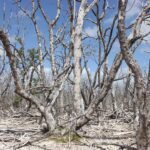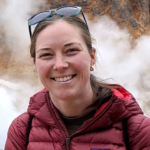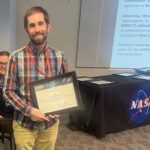Bridging the gap between climate science and the business world in order to help companies prepare for the effects of climate change is a job that has taken Guillermo “Willy” Accame from The Royal Society of the U.K. to the White House.
Accame, a University of Maryland distinguished alumnus and current ESSIC and CIRUN industry liaison, said improving communication between climate scientists and the private industry, both by making climate data produced by NOAA and other research institutions accessible to businesses, as well as facilitating productive communication between scientists and business leaders, is crucial.
“We’re focusing on adaptation to changing trends in climate,” Accame said. “Part of what we’re doing is working with a broad range of industries to help them figure out what about their operations is susceptible to changes in climate.”
Except for a few key industries, including agriculture, oil and gas, energy, and water supply, many sectors tend to not be immediately concerned with the possible effects of a changing climate, even though it could have impacts on businesses’ ability to operate efficiently, Accame said. To a certain extent, consulting firms have stepped in to advise businesses, examining climate trends, for instance, to identify shifts in temperature or the likelihood of wet or dry seasons.
However, many other industries are not as aware of the potential effects of climate change. Within the context of CIRUN, Accame has worked with the insurance, oil and gas, water supply, water use, manufacturing, energy, ports, engineering/construction, commercial real estate, agriculture, ecosystem/habitat, urban planning, financial, and mining industries.
Accame has also presented evidence from the perspective of private industry to The Royal Society of the U.K. in support of a climate resilience study. Recently, he contributed to the White House’s new Climate Data Initiative, which aims to make climate data accessible to the public with easy-to-use online tools.
“I was asked by the Office of Science and Technology Policy to serve on a working group of 20 individuals brought in from around the country to talk about the mechanics of how to successfully implement the President’s Climate Data Initiative,” Accame said. “My role in that working group — besides the fact that I have a strong background in analytics, remote sensing, and geographic information systems — was to present the thoughts and perspectives of private industry.”
The Climate Data Initiative, part of a 2013 executive order requiring federal agencies to publish and update various data, will make it much easier for individuals, communities, and companies across the country to access specific data related to climate and better prepare for any potential impacts, Accame said.
At the University of Maryland, Accame chaired the CIRUN/NOAA Executive Roundtable, whose purpose was to provide leaders from the public and private sector the opportunity to engage in a day-long exchange with senior representatives from NOAA and university climate scientists, regarding their needs and priorities.
As an outgrowth of this meeting CIRUN launched an applications test bed pilot for which Accame serves as the chair of the Industry Advisory Panel. The objective is to provide specific and actionable information on three main areas of concern: flooding, soil moisture, and extreme precipitation, as it relates to water supply.
Accame, who holds an undergraduate degree in geology from the University of Maryland, as well as a master’s degree in geochemistry and remote sensing from Purdue University, currently works as Director of Risk Management at Panattoni Development Company, Inc.





